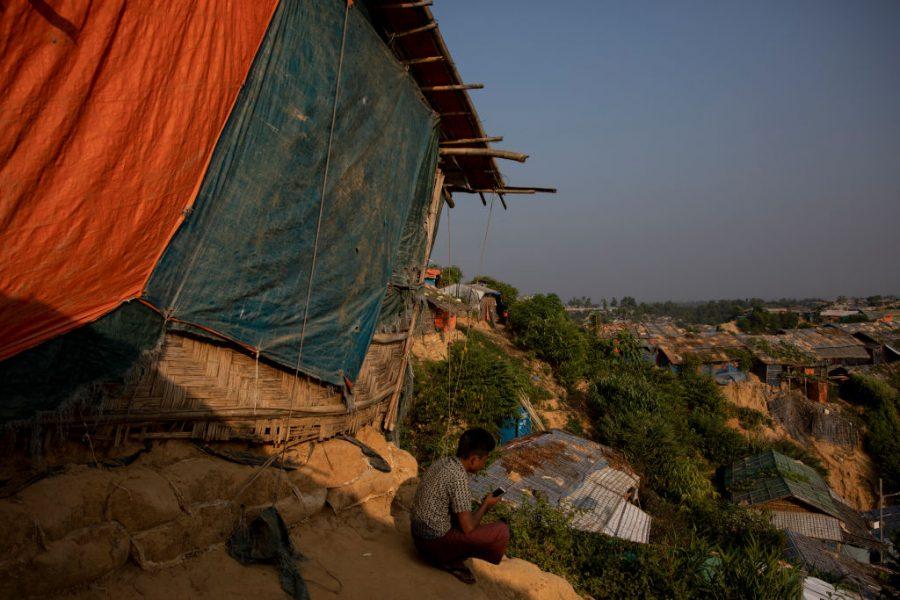Myanmar’s five Ms: misunderstanding, mistrust, misinterpretation, misconception and mistreatment
Posted By Zeyar Oo on February 17, 2020 @ 13:09

Since regaining its independence in 1948, Myanmar has endured essentially constant internal armed conflict.
These stresses, compounded by the missteps of successive administrations, have led the country to fall into a deep chasm of political and ethnic disunity and its development to lag behind other countries in the region.
In addition, despite its strategic location—Myanmar constitutes the bridge between South Asia and Southeast Asia and abuts both China and India—Myanmar’s internal difficulties have left little scope to leverage its geography.
The political context in Myanmar is complex. Numerous key actors are generating competing and complicated dynamics that constitute a weak and unstable foundation for effective governance.
The persistent reality of internal armed conflict, and the associated weakening of the country’s economic, social and political infrastructure, present a long-term challenge to national security. Equally, of course, because it occupies a geopolitically strategic space, Myanmar’s fragile security circumstances inevitably affect its neighbours.
In broad terms, Myanmar’s national security infrastructure has been shaped by four main factors: politics, economics, social issues and diplomatic relations. Myanmar’s complex and stressful domestic circumstances also profoundly complicate its national security outlook.
Myanmar currently faces a wide range of pressing issues, including internal armed conflicts between the Myanmar Armed Forces (the Tatmataw) and ethnic armed organisations; the peacebuilding process among the government, the Tatmataw and the ethnic armies; the ongoing Rakhine crisis; constitutional contention between the government and the Tatmataw; nationalistic sentiments and religious tensions; economic hardships; the potential spread of terrorism and violent extremism; the prediction of more frequent and intense natural disasters driven by climate change; the prevalence of illegal drugs and narcotics, especially along the border areas; daunting inadequacies in the education and health sectors; and contentious diplomatic relations with some neighbouring countries.
The ongoing civil conflicts have been the primary root cause of Myanmar’s current political difficulties and a major hindrance to establishing a peaceful and prosperous nation.
There are more than 20 ethnic armed organisations in Myanmar, a larger number than any other state has had to deal with. The emergence of these groups is a legacy of the ‘divide and conquer’ strategy from the colonial era that left deep ethnic sentiments of discrimination and segregation.
The National League for Democracy–led government has been making a strenuous effort to halt these internal conflicts and put the nation on a path of peace and national reconciliation. But the dogmatism of some parties in the peace dialogue has damaged mutual trust and confidence, resulting in a political stalemate.
Despite the Tatmataw’s offer to extend its unilateral ceasefire, continued fighting in Rakhine State and some northern areas indicates that a dependable peace in Myanmar may still be a long way off. The Tatmataw and the ethnic armed groups, as the main actors in Myanmar’s peace process, need to see diversity as a reality and potential strength and continue building peace within and beyond the framework of the nationwide ceasefire agreement.
In recent years, the Rakhine crisis has become a flashpoint drawing global attention and threatening national security. Four major issues in the Rakhine crisis remain unresolved: the delays in the repatriation of refugees in Bangladesh’s refugee camps; the Arakan Rohingya Salvation Army and its radicalisation of vulnerable refugees; the severity of socioeconomic underdevelopment in Rakhine State; and the ongoing fighting between the Tatmataw and the Arakan Army, an armed ethnic group in northern Rakhine State.
The relationship with China is vital. Myanmar shares its longest border with China, which is the country’s biggest trading partner and investor and a strategic partner that has traditionally supported and defended Myanmar in the face of international pressure, especially from the United Nations and Western countries (particularly the United States).
China also possesses considerable influence over the ethnic armed organisations residing along Myanmar’s borders and plays a critical role in the nationwide peace process.
Myanmar’s relationship with China has always been a priority for successive governments, including the Tatmataw. Despite the continued suspension of the mega-dam project in conflict-prone Kachin State, newly ambivalent public sentiment towards China and the incumbent government’s favourable relations with the West, Myanmar’s highly asymmetric bilateral relationship with China remains strong.
China, of course, exercises the influence it has on Myanmar politics in pursuit of its own strategic interests, but it remains the case that any erosion of Chinese interests will have significant effects in Myanmar.
As a consequence of the Rakhine crisis, Myanmar’s most immediate and acute foreign policy challenge is to manage its relationship with Bangladesh.
Each country has accused the other of lacking the political will to meet the requirements for the repatriation of refugees.
Myanmar and Bangladesh signed an agreement on repatriation as far back as November 2017. Yet its implementation has been hampered by ongoing delays.
From a security perspective, Bangladesh’s energetic lobbying for international diplomatic support in the face of Myanmar’s Rakhine crisis will further impact implementation of the repatriation process, whether it is bilateral or assisted by the concerned UN agencies.
Consequently, the situation is likely to result in a growing distance and more misunderstanding between the two countries, leading to further delays in the repatriation process that may heighten the security risk to the region, as well as to the two neighbours.
Myanmar’s national security has been challenged directly and indirectly by these intertwined and interconnected issues, and the government must be tactful and forward-looking in addressing each of them. Avoiding misunderstanding, mistrust, misinterpretation, misconception and mistreatment (the so-called five Ms guideline for policy development and implementation) constitutes sound advice for the future of Myanmar.
Article printed from The Strategist: https://aspistrategist.ru
URL to article: /myanmars-five-ms-misunderstanding-mistrust-misinterpretation-misconception-and-mistreatment/
Click here to print.